Client management software is crucial for businesses of all sizes. Your success hinges on client relationships, both current and potential.
Fortunately, there are many software options to streamline this process. With numerous choices available, selecting the right one can be daunting.
We’ve narrowed it down to our top 7 client management software picks. Here’s a summary table and our recommendations. We’ll also dive deeper into client management to help you make an informed decision.
| Brand | Description | Rating | Price | Links |
|---|---|---|---|---|
Best Overall 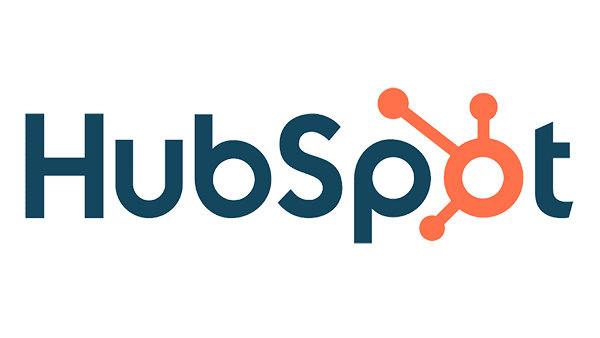 | Hubspot•HubSpot CRM is a powerful and intuitive tool designed for businesses of all sizes. Simplify your sales, marketing, and customer service proc... |
| Starts at $0Use Completely Free (Upgrades Available) | |
Author Pick  | Pipedrive•Pipedrive is a web-based CRM (Customer Relationship Management) platform designed to help businesses manage their sales processes more effec... |
| Starts at $14/mo30 day trial + 20% off | |
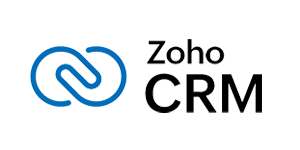 | Zoho CRM•Zoho CRM is a comprehensive customer relationship management platform designed for businesses of all sizes. It offers a wide range of featur... |
| Starts at $14/moTry free for 15 days | |
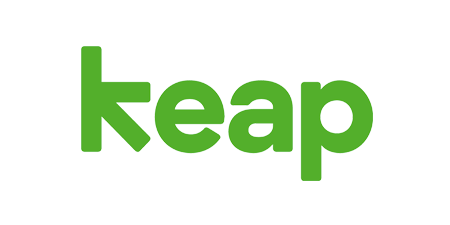 | Keap•Keap’s CRM and sales and marketing automation are designed to help small businesses keep their clients while adding new ones effortlessly.... |
| Starts at $249/moTry free for 14 days | |
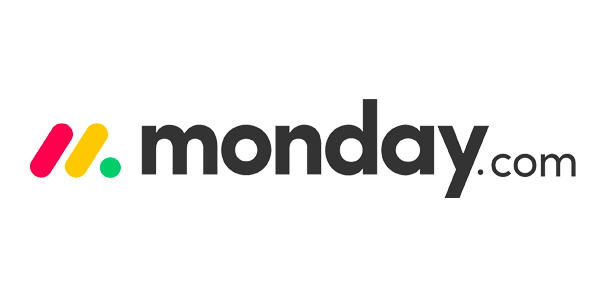 | Monday•Centralize all your work, processes, tools, and files into one system, enhancing team alignment and productivity. Manage projects, streamlin... |
| Starts at $0-19/seat/monthForever Free up to 2 Seats | |
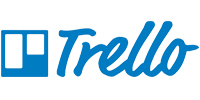 | Trello•Trello simplifies teamwork by organizing tasks, teams, and tools in one visual workspace. Create customizable boards, lists, and cards to tr... |
| Starts at $0-10/moFree Starter Version |
Best Overall CMS
Hubspot
HubSpot CRM is a powerful and intuitive tool designed for businesses of all sizes. Simplify your sales, marketing, and customer service processes with features like mass email campaigns, SEO insights, and landing page creation. Ideal for freelancers, solo entrepreneurs, and growing teams, HubSpot offers a free plan with access to all software hubs, ensuring an easy setup and modern navigation interface to enhance your workflow.
Why we like Hubspot ‣
HubSpot offers a comprehensive, all-in-one customer relationship management (CRM) platform that caters to businesses of all sizes. We appreciate HubSpot's approach to providing a robust free plan, allowing companies to start with essential CRM features and scale up as needed. The platform's strength lies in its integration of marketing, sales, and customer service tools, creating a unified ecosystem for managing customer interactions throughout their journey.
Hubspot Pros & Cons ‣
Pros:
- Generous free plan with core CRM functionality
- Seamless integration between marketing, sales, and service hubs
- User-friendly interface with intuitive dashboards and reporting
- Powerful automation capabilities across various business processes
- Extensive library of educational resources and certifications
Cons:
- Pricing for advanced features can be expensive for small businesses
- Learning curve can be steep due to the wide array of features
- Some users report limitations in customization options
- Additional costs for some integrations and add-ons
- Contact management can be complex for businesses with intricate structures
Author’s Pick
Pipedrive
Pipedrive is a web-based CRM (Customer Relationship Management) platform designed to help businesses manage their sales processes more effectively. It offers a visual sales pipeline, lead and deal management, automation tools, and sales analytics. Pipedrive's user-friendly interface allows teams to track customer interactions, manage tasks, and monitor sales performance. The platform emphasizes simplicity and customization, enabling businesses to tailor the CRM to their specific needs. With features like email integration, mobile access, and third-party app connections, Pipedrive aims to streamline sales workflows and boost productivity for sales teams of various sizes.
Why we like Pipedrive ‣
Pipedrive offers a streamlined and highly visual customer relationship management (CRM) solution that's particularly well-suited for sales-driven organizations. We appreciate Pipedrive's focus on simplifying the sales process through its intuitive pipeline view, which allows teams to easily track deals and prioritize activities. The platform's customizable nature and strong automation capabilities make it adaptable to various sales methodologies and business sizes.
Pipedrive Pros & Cons ‣
Pros:
- Intuitive, visual pipeline management that's easy to use
- Customizable fields and workflows to match specific sales processes
- Strong mobile app for on-the-go sales management
- Robust integration options with many popular business tools
- AI-powered features to enhance sales forecasting and lead scoring
- Solid email integration and tracking capabilities
Cons:
- Limited built-in marketing features compared to all-in-one CRM platforms
- Advanced reporting and analytics only available in higher-tier plans
- May lack some industry-specific features for certain verticals
- Can become pricey for larger teams needing advanced features
- Some users report occasional sync issues with email integrations
Zoho CRM
Zoho CRM is a comprehensive customer relationship management platform designed for businesses of all sizes. It offers a wide range of features to manage sales, marketing, and customer support processes. Key features include lead and contact management, sales automation, analytics, and customizable workflows. Zoho CRM emphasizes ease of use, fast implementation, and integration capabilities with over 800 third-party apps. The platform also includes AI-powered tools for predictive sales and intelligent assistance. With its focus on automation, personalization, and in-depth analytics, Zoho CRM aims to help businesses streamline operations, improve customer relationships, and drive growth.
Why we like Zoho CRM ‣
Zoho CRM offers a comprehensive and highly customizable customer relationship management solution that caters well to growing businesses of all sizes. We appreciate Zoho's blend of powerful features and user-friendly interface, making it accessible for both CRM newcomers and experienced users. The platform's strength lies in its extensive automation capabilities, AI-powered insights, and robust analytics tools, all designed to streamline sales processes and boost productivity.
Zoho CRM Pros & Cons ‣
Pros:
- Highly customizable with extensive no-code and low-code options
- Strong AI integration with Zia for intelligent insights and automation
- Comprehensive omnichannel communication capabilities
- Generous feature set even in lower-tier plans
- Extensive app marketplace for easy integrations
- Well-designed mobile app with robust functionality
Cons:
- Some advanced features only available in higher-tier plans
- Learning curve can be steep due to the wide array of features and customization options
- Some users report occasional connectivity issues
- Pricing structure may become expensive for larger teams needing advanced features
- Marketing automation features are limited in lower-tier plans
Keap
Keap’s CRM and sales and marketing automation are designed to help small businesses keep their clients while adding new ones effortlessly. Automate follow-ups with emails and texts, ensuring leads and clients receive the right messages at the right time. Use website and social media forms to streamline lead follow-up, and manage your growth with easy appointment scheduling and lead tracking. Boost sales with automated quoting, invoicing, and payment processing, freeing up your time. With Keap, small businesses can save 10 hours per week and increase revenue by 39%. Start with a 14-day free trial, no credit card required.
Why we like Keap ‣
Keap offers a comprehensive customer relationship management (CRM) and marketing automation solution tailored for small businesses and entrepreneurs. We appreciate Keap's focus on streamlining sales processes and nurturing customer relationships through powerful automation tools. The platform's all-in-one approach combines CRM, email marketing, invoicing, and task management, making it particularly attractive for businesses looking to consolidate their tech stack.
Keap Pros & Cons ‣
Pros:
- Robust automation capabilities for marketing and sales processes
- User-friendly interface designed for small business owners
- Integrated CRM, email marketing, and e-commerce tools
- Strong customer support and onboarding resources
- AI-powered features to enhance productivity
Cons:
- Learning curve can be steep for some users
- Pricing is MUCH higher compared to its competitors
- Some advanced features only available in higher-tier plans
- Reporting capabilities could be more comprehensive
- Limited customization options for larger or more complex business
Monday
Centralize all your work, processes, tools, and files into one system, enhancing team alignment and productivity. Manage projects, streamline sales processes, and accelerate product lifecycles with monday.com's suite of products, including Work Management, CRM, and Dev. Ideal for professionals and teams, it provides a seamless work experience with features like project management, resource management, sales pipeline tracking, and roadmap planning. Enjoy the flexibility to shape workflows your way, supported by 24/7 customer service and an unlimited free plan.
Why we like Monday ‣
Monday.com offers a versatile and visually intuitive project management platform that caters to teams of all sizes across various industries. We appreciate its highly customizable interface, which allows users to create workflows that match their specific needs. The platform's strength lies in its ability to provide multiple views of project data, from Kanban boards to Gantt charts, enabling teams to visualize their work in ways that make the most sense for them.
Monday Pros & Cons ‣
Pros:
- Highly customizable boards and workflows
- Multiple view options (Kanban, Gantt, Calendar, etc.) for versatile project tracking
- Robust automation features to streamline repetitive tasks
- Extensive integration capabilities with popular tools and services
- User-friendly interface with colorful, visual organization
Cons:
- Pricing structure can be complex and potentially costly for larger teams
- Learning curve may be steep for some users due to the abundance of features
- Limited built-in time tracking capabilities in lower-tier plans
- File management could be more robust
- Some users report occasional performance issues with larger datasets
Trello
Trello simplifies teamwork by organizing tasks, teams, and tools in one visual workspace. Create customizable boards, lists, and cards to track progress effortlessly—from planning stages to project completion. Ideal for teams of all sizes, Trello offers intuitive features like Timeline and Calendar views, seamless integrations, and Butler automation to streamline workflows and boost productivity. Trusted by millions worldwide, Trello adapts to any project or workflow, ensuring teams stay organized and focused on what matters most.
Why we like Trello ‣
Trello offers a simple yet powerful solution for project management and team collaboration. Its intuitive Kanban board interface makes it easy for teams to visualize workflows, track tasks, and stay organized. We appreciate Trello's flexibility, allowing users to customize boards for various projects and workflows. The software shines in its simplicity, making it accessible for teams of all sizes and technical backgrounds.
Trello Pros & Cons ‣
Pros:
- User-friendly interface with drag-and-drop functionality
- Variety of board views including calendar, timeline, and map (in paid plans)
- Robust free plan for basic project management needs
- Extensive integration options with other tools and apps
- Built-in automation features to streamline workflows
Cons:
- Limited features in free and Standard plans compared to competitors
- Advanced views only available in Premium and Enterprise plans
- Single sign-on requires an additional fee for non-Enterprise users
- Phone support only available for Enterprise customers
- May be too simple for complex project management needs
What is Client Management?
Client management entails forming relationships between a business and its customers. It covers everything from customer lifecycle planning, setting predictions, building trust, to setting boundaries and measuring customer satisfaction.
To properly manage clients, you need to do the following:
- Understand the pain points of clients
- Provide easily accessible lines of communication
- Address client queries and concerns promptly
To understand the needs of your clients, you may have to run surveys. In addition, you should use CMS software to aggregate data on customer behavior. That can help you know the client’s needs even before the client knows them.
Of course there are also several benefits. First of all, your clients are likely to stay with you longer if you stay organized. Seeing that it’s easier and less expensive to retain a client than to find a new one, client management is a must.
What is Client Management Software?
Client management software is any tool that helps you manage client relations. Typically, such software are cloud-based SaaS tools that you can subscribe to monthly. In many cases, you can choose pricing based on the features you choose.
Overall, a good CMS enables you to automate your communications with clients and keep track of important details. However, some tools are tailored to specific functions.
For instance, you’ll find tools that are big on optimizing your marketing processes and increasing sales. Or others focus on task management tools to help you stay organized and get more done.
Ultimately, your choice of client management software depends on your industry and your needs.
How to Best Use a CMS
The ultimate objective of client management software is to give your clients quality services for the sake of maximizing sales. You can categorize this into two segments: customer acquisition and customer retention.
Customer Acquisition
Efficient client management enables you to give customized, focused service to your prospective customers. Due to this, you’ll have a more significant opportunity of changing these prospective customers into actual shoppers.
With a helpful CMS, you can effortlessly oversee existing leads, control client communication, and plan personalized client communications. This is much easier as compared to manually trying to track all your information.
Customer Retention
Customer retention is an essential part of enjoying success in your business. In a recent report by Bain and Company, it was revealed that a 5% increase in customer retention could lead to a 25% rise in profit. The report also highlighted that 93% of customers are highly prone to buying from organizations with an excellent customer care system.
Effective client management is an excellent way to establish loyalty with existing clients and provide them with top-notch service. In doing so, you’re raising your chances of them buying from you in the future.
That’s where software comes in; with a CMS, you’ll be able to store information about your existing customers and send planned follow-through messages to persuade customers to patronize your products and services some more.
How to Get the Most Out of Your CMS
Across the board, CMS have mostly similar features and tools, but no two CMS are the same. For instance, each one has a unique interface that would likely take some getting used to.

That’s why you should take advantage of the tutorials and how-to guides that each software offers. That way, you shorten your learning curve and get the best out of the software.
It is essential to choose a platform that is tailored for your desired needs. While deciding on the right CMS platform for you can be cumbersome, it’s necessary to find the distinct features of each one, so you can find the one that will best fit your business.

Keep the conversation going...
Over 10,000 of us are having daily conversations over in our free Facebook group and we'd love to see you there. Join us!


